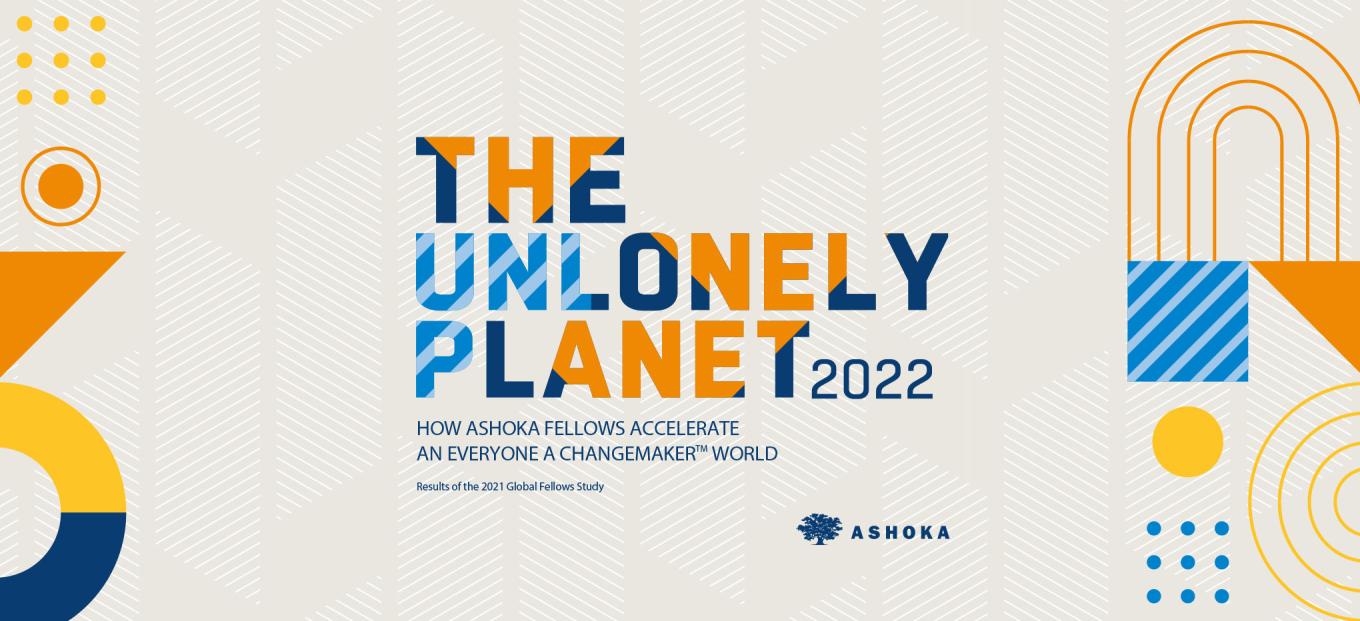
How are Ashoka Fellows engaging individuals as changemakers? What strategies do they use to build partnerships that inspire both changemakers and solutions? How are they changing systems to create a world in which everyone can contribute, and therefore, thrive?
Every three years, Ashoka conducts a study to understand how its Fellows are driving lasting social change. In 2021, we quantified how Ashoka Fellows shift mindsets, change policies, and activate others as changemakers.
A total of 817 Ashoka Fellows participated in the global survey and 32 Fellows participated in in-depth interviews. The methodology, analysis, and data collection have been co-led by a team from Tyresia, the Business School of Polytechnic of Milan and the Ashoka Impact and Evidence Team.
Here are some of the key findings of the 2021 survey of Ashoka Fellows, representing one of the largest studies of systems-changing social entrepreneurs globally.
? Ashoka Fellows inspire individuals to become changemakers
Strategy 1: Create opportunities for many individuals to contribute. In addition to creating employment (95% of Ashoka Fellows) and volunteer opportunities (87%), many Fellows recognize that it is time for a fundamental shift especially in the role of young people. 89% of Fellows are putting young people in charge of leading change within their organizations.
Strategy 2: Encourage individuals to believe in their own capacity. By encouraging problem-solving on even a small scale, Ashoka Fellows expand others’ sense of agency. Giving a person the opportunity to take action and make a difference–no matter how small–sets in motion a long-term commitment to changemaking.
Strategy 3: Redefine “weaknesses” as strengths. Interview data showed that Ashoka Fellows take stock of people’s skills and invite them to put these to good use. Further, they look at what broader society may perceive as weakness and find strength, leveraging diverse experiences or skills to drive positive change.
Strategy 4: Support changemaker identity development. Ashoka Fellows identity as changemakers sustains their commitment to systems-change work. This identity benefits their communities and professional endeavors as well as their personal development and quality of life. Wanting this for those around them, Ashoka Fellows help others to develop changemaker identities.
? Ashoka Fellows collaborate to engage more changemakers
Strategy 5: Build multiplier partnerships. Ashoka Fellows build partnerships to generate solutions, impact, and changemakers. They work with others toward a shared vision. They often relinquish control and ownership of their ideas to see them spread as far as possible: 82% of Ashoka Fellows have had their innovations replicated by others (through strategic partnerships, open sourcing or licensing, among other methods). 61% replicated within their country, and 42% at an international level.
Strategy 6: Create space for the community’s voice. Ashoka Fellows see community members not as beneficiaries, but as experts and decision-makers. As such, they create space for community members to develop solutions and voice their plans for action. They present ideas and ask for input from a range of stakeholders or invite others to partner in implementing solutions.
Strategy 7: Engage individuals everywhere. Interview data show that Fellows strategically target community members who are beyond the inner circle of allies. By targeting “unlikely allies,” Fellows can often engage those who may not normally encounter a specific social issue, but who can meaningfully contribute to positive social change.
⚡ Ashoka Fellows change systems to support all changemakers
Strategy 8: Shift policies and market systems. Many institutions either by design or inadvertently prevent large portions of society from reaching their full potential. Ashoka Fellows shift systems and restructure institutions to operate in service of the collective good and provide many more people the freedom and support to contribute. They do this by changing policies of large companies or industries (51%), encouraging them to include previously excluded communities (52%), or creating value for a product or service where it didn’t exist before (51%). At the legislative level, 63% of Ashoka Fellows changed or influenced government policy, while 66% have advised policymakers as experts.
Strategy 9: Influence societal mindsets or cultural norms. By influencing societal mindsets and cultural norms, they help others see and act in accordance with social changes that benefit all. Fellows do this by encouraging people to think differently (88%), through campaigns (43%), or through programs (21%).
Strategy 10: Foster supportive environments that enable changemaking. Fellows invest their energy in the creation of communities where individuals feel psychologically and physically safe, cared for and supported. They do this within the walls of the organizations, but also wherever they convene the broader community in public spaces from classrooms to community squares. In doing so, individuals feel comfortable to share their ideas, work with others, and build something new.
Strategy 11: Build ecosystems that sustain changemaking. Interview data show that Fellows bring together funders, businesses, governments, civil society organizations, media companies, and universities to reduce barriers that blunt agency and prevent individuals from engaging in changemaking. By banding together, they can exponentially increase their potential to address issues that perpetuate systemic inequality.